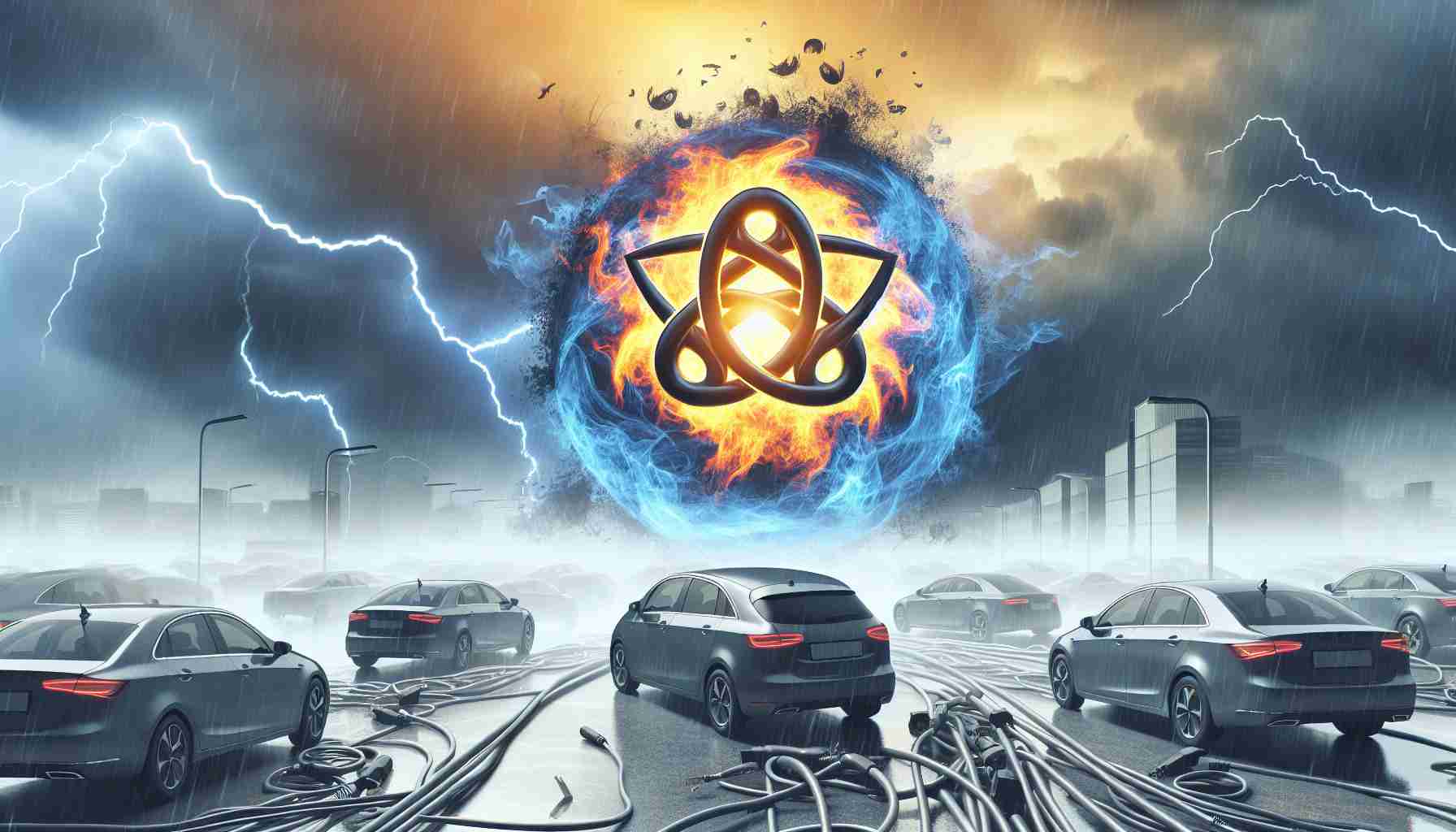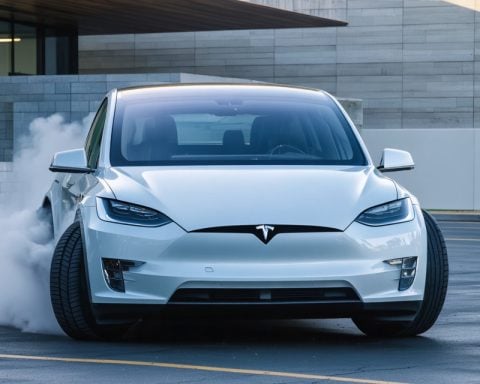Trump’s Energy Strategies Face Backlash
As Donald Trump’s presidency began, confusion and unpredictability were evident from Day One. He quickly signed several executive orders that stirred up considerable concern among environmentalists and legal experts alike. One of the most controversial orders was whimsically titled “Unleashing American Energy.” At its core, this directive aimed to bolster fossil fuel usage while stalling the advancement of renewable energy sources.
A significant thrust of this executive order targeted the National Electric Vehicle Infrastructure (NEVI) and Charging and Fueling Infrastructure (CFI) Grant Programs, which were established under the Infrastructure Investment and Jobs Act. These programs, alone, are set to distribute $7.5 billion to enhance electric vehicle charging networks across the United States. Trump’s intention was to freeze unspent funds, a move aligned with his previous campaign rhetoric against what he termed the “Green New Scam.”
However, Trump’s ability to enforce such drastic changes faces significant hurdles. Legal analysts assert that halting these funding programs would likely violate the Impoundment Control Act of 1974. Moreover, garnering support from Congress would be crucial, particularly since many Republican representatives are in districts benefiting from EV initiatives.
While Trump’s actions have raised alarm bells, the car manufacturing sector seems relatively undeterred, as the global shift towards electric vehicles remains robust. Despite the theatrical political maneuvers, the future of the auto industry appears more electrified than ever, countering the noise coming from Washington.
The Broader Implications of Energy Policies
The energy strategies championed by Donald Trump shed light on critical tensions within American society regarding environmental policy, economic priorities, and cultural values. As fossil fuel interests clash with the burgeoning renewable energy sector, the implications extend beyond politics into the daily lives of citizens and future generations.
The push for fossil fuels, while appealing to certain economic segments, faces increasing backlash as climate change concerns escalate. The National Renewable Energy Laboratory estimates that transitioning to renewable energy could save the U.S. economy $2 trillion by 2030, emphasizing that investment in cleaner technologies is integral to long-term economic stability. Communities invested in clean energy often see job growth and enhanced quality of life, creating a stark contrast to regions reliant on declining fossil fuel industries.
Potential environmental repercussions of prioritizing fossil fuel over renewables include exacerbated air quality issues and increased greenhouse gas emissions, which researchers warn could lead to more severe climate events. Furthermore, global trends illustrate a pivot toward sustainable practices. Countries such as China and Germany are aggressively expanding their renewable sectors, leaving the U.S. at risk of falling behind in technological advancement and clean energy leadership.
Ultimately, the ongoing struggle between fossil fuel advocacy and renewable energy investment will define not only the current economic landscape but also set the trajectory for societal values regarding sustainability and environmental stewardship in the decades to come.
Will Trump’s Energy Strategy Derail EV Progress or Accelerate Innovation?
Trump’s Energy Strategies Under Scrutiny
Donald Trump’s approach to energy and environmental policy has consistently been a point of contention, raising questions about the future of renewable energy and electric vehicle (EV) charging infrastructure in the United States. As his presidency commenced, the executive order titled “Unleashing American Energy” aimed to significantly increase fossil fuel production at the potential expense of sustainable energy advancements.
Impact on Electric Vehicle Infrastructure
The “Unleashing American Energy” directive specifically targeted programs like the National Electric Vehicle Infrastructure (NEVI) and the Charging and Fueling Infrastructure (CFI) Grant Programs, which are pivotal parts of the Infrastructure Investment and Jobs Act. This legislation was designed to distribute a substantial $7.5 billion to bolster the nation’s electric vehicle charging networks, a critical step in transitioning to a sustainable energy future. Trump’s ambitions to freeze the allocation of these funds face not only legal obstacles but also political resistance, as congressional support is necessary, particularly from representatives in districts benefiting from EV initiatives.
Legal Framework and Challenges
The potential freezing of these funds raises significant legal concerns. Legal experts point out that such an action might contravene the Impoundment Control Act of 1974, which restricts a president’s ability to withhold funds that have been appropriated by Congress. The legal framework surrounding federal funding for infrastructure could become a battleground if Trump attempts to execute his energy strategy against the grain of existing laws and regulations.
The Automotive Industry’s Resilience
Despite Trump’s polarizing policies, the automotive sector is still leaning heavily into electric vehicle innovation. The shift towards electrification is bolstered by consumer demand, advancements in battery technology, and an expanding market for electric vehicles, reflecting a broader global trend. Notably, major car manufacturers have committed to sustainable models, indicating that the market momentum for EVs is likely to continue, regardless of the political climate.
Pros and Cons of Trump’s Energy Strategy
Pros:
– Increased focus on domestic fossil fuel production could lead to short-term economic benefits and job creation in traditional energy sectors.
– Possible reduction in fuel prices due to increased supply.
Cons:
– Stalling progress on renewable energy could hinder long-term sustainability efforts and climate goals.
– Legal challenges and political backlash could disrupt funding for critical EV infrastructure projects.
– The potential alienation of environmentally-conscious consumers and investors.
Predictions for EV and Energy Landscape
The outlook for the electric vehicle market remains positive, with projections indicating substantial growth in EV sales over the next decade. Industry analysts predict that as federal support for EV infrastructure continues, even in the face of political resistance, manufacturers will further innovate and compete in the electric vehicle space. The push for sustainability can also lead to an acceleration of technological advancements, with companies investing in research and development to meet changing consumer preferences and regulatory standards.
Innovations and Trends in the Energy Sector
1. Battery Technology Advancements: Research is focusing on next-generation battery technologies, such as solid-state batteries, which promise faster charging and longer lifespans.
2. Smart Charging Networks: Integration of AI and IoT technologies is streamlining the charging process, making it more efficient and accessible.
3. Sustainable Materials: Companies are exploring the use of sustainable materials in vehicle production, reflecting an increased commitment to environmentally-friendly practices.
Conclusion
While Donald Trump’s energy strategies may pose challenges to the progress of renewable energy and electric vehicles, the broader market forces driving the transition to electric mobility are largely resilient. The combination of consumer demand, legal frameworks, and industry innovation is expected to shape the future landscape of energy and transportation in the United States. For more information on current trends in energy and electric vehicle technology, visit energy.gov.


















